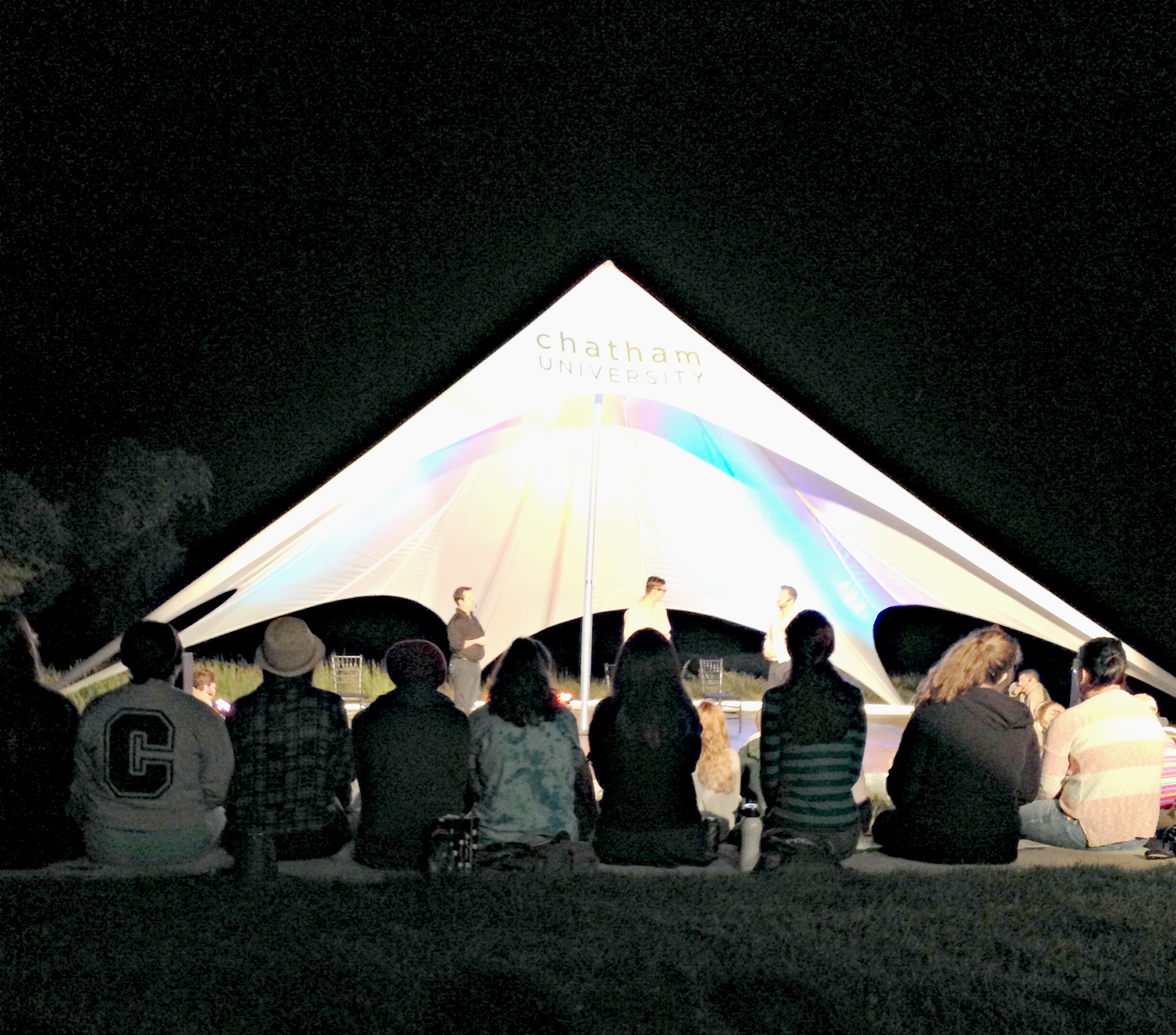Kimberly Lucke’s op-ed in the Communiqué–“The Emperor has no clothes: Eden Hall campus’ promise of sustainability as nothing more than an elaborate illusion”– raises some interesting philosophical points, contains some factual errors, and arguments which need a little unpacking. So, in an effort to move towards solutions, let me dive in.
Is the Eden Hall Campus truly sustainable? No, nothing last for eternity. In the end, entropy always wins. But over a timeframe we are comfortable with and with a notion of sustainability that is not so fundamentalist, the Eden Hall infrastructure will be way more sustainable than most university campuses and communities. It is designed to have zero carbon emissions. At present it generates more energy than it uses and does so from renewable sources (geothermal and solar). We actively treat the majority of wastewater and storm water run-off on-site, thus greatly reducing our impact on the waterways of the region. Our farm is using sustainable practices. The new buildings are built to high LEED standards. So the infrastructure, energy, and water systems are highly sustainable.
Our challenge now is to build a living and working community on top of this that exemplifies the principles of sustainability. Sustainable communities balance public good (for now and the future) against private desire, and they embody principles of governance which both seek to represent the wishes of the individuals and the rights of the broader public, and generations yet to come. In this spirit, I throw out a challenge to all of Chatham’s faculty and students. Let’s identify the problems (a thing academia is pretty good at), but also come up with workable solutions. A big chunk of sustainability is about community-generated adaptations to change. Figuring out how to make Eden Hall work as a learning community is the real challenge of the next year.
I also want to clarify that Eden Hall is a campus very much geared for both graduate and undergraduate student use today and in the future. At present, graduate students use it far more than undergrads. The systems that are in place – energy, water, the farm – generate opportunities and data that grad students (and soon undergrad students) embrace and use in their learning.
Eden Hall Campus will be pioneered, seeded if you like, by the Falk School. As the campus grows to the vision of 1,000 students one day, it will become like a branch campus offering a broad range of degrees, but all embodying the sustainable philosophy. Beginning this fall, graduate and undergraduate courses in business, psychology and education are going to be taught there for residents of the North Hills. The new, one-credit Eden Hall Experience classes for all Chatham undergraduates will also be offered. Biology classes and creative writing classes are already planned.
As the range of courses offered at Eden Hall grows, and as we get smarter at using the video-teaching facilities to connect students in one location with faculty in another, the challenge of travelling between the two campus will be reduced. In the meantime, it is true that public transportation to Eden Hall is poor. That is why we are providing our own shuttle service, shared short-term car rental services and encouraging ride sharing in this inaugural year.
The first residence hall at Eden Hall is on track to open this August. It includes rooms for undergraduates and some more suitable for graduate students, with blocks of two bedrooms connected to their own private bathrooms. True, there are no fully fledged apartments, but that’s the point. We are not trying to emulate the unsustainable lifestyle of today, but rather experiment with a more sustainable lifestyle for the future.
Is Eden Hall isolated and remote? Is there nothing to do out there? Well, what you see depends so much on where you stand. As someone who lives a mile north of campus, I’ve found there are good farm shops close by Eden Hall, locally-owned restaurants, tennis centers, a community center, shopping and more.
Yes, Eden Hall is not living in downtown Pittsburgh and the campus is not intended to provide urban opportunities. However, with three Chatham locations, spanning a gradient from urban to periurban, and with substantial community-based and urban engagement, we have the unique opportunity to create a 20 mi + learning landscape that can demonstrate how place and scale are key to sustainable initiatives. For example, land use policies, storm water management options, and development approaches vary in their appropriateness depending on location. What is appropriate for downtown Pittsburgh is not appropriate for EHC and vice versa. Our campuses enable us to highlight these place-based differences in a way that other universities cannot.
Whether we are able, over the next 20 years, to build a sustainable campus at Eden Hall depends, in large part, on the engagement of faculty and students. You can be part of building the vision, for now and for future generations. I welcome the conversation and look forward to working with you all.
